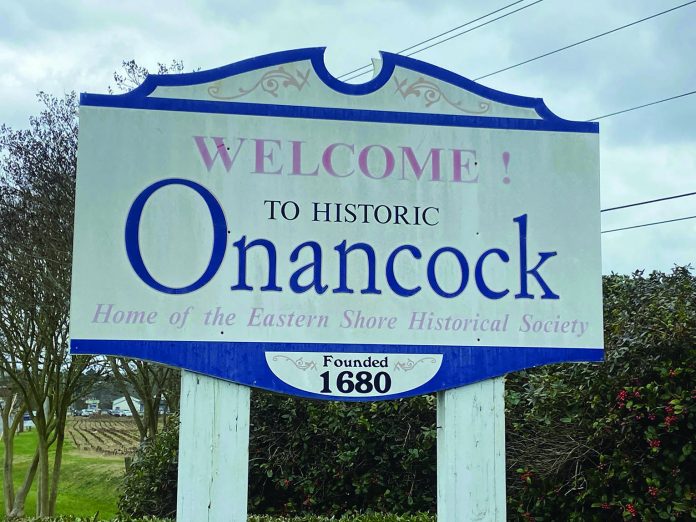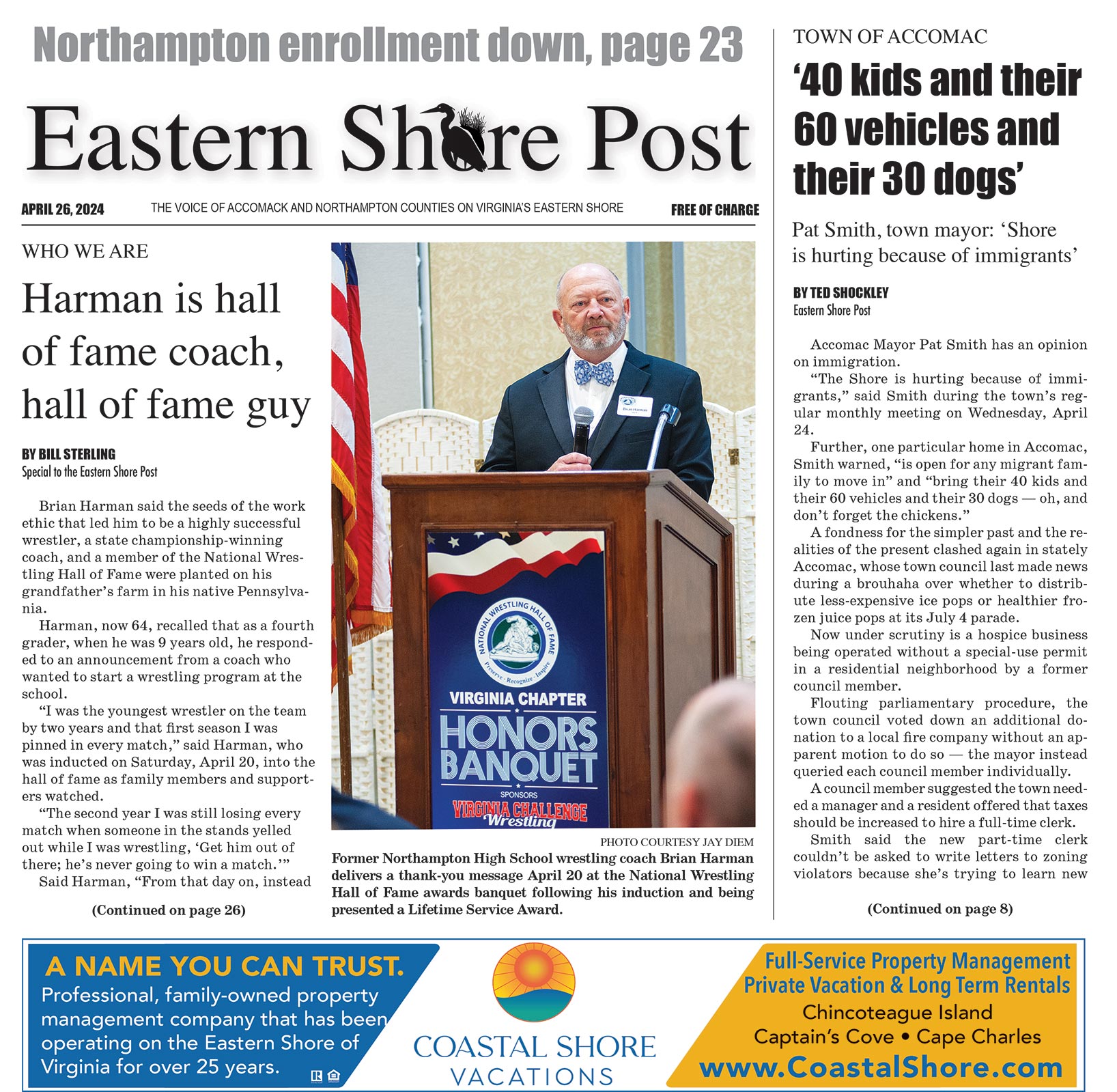By Carol Vaughn — The Onancock Town Council at its Monday, July 25, meeting approved changes to the downtown business district (B-1) zoning ordinance and discussed proposed changes to the waterfront business district zoning ordinance.
A public hearing was held previously to receive comment about the revisions.
Among major changes is allowing residences by right on floors above ground-floor businesses.
A special use permit previously was required.
Additionally, homestay businesses are permitted by right in the downtown business district in the revised ordinance, with no limit on the distance between properties or the number of homestays owned.
Hotels with fewer than 10 rooms also are permitted by right, as are public outdoor spaces, art galleries and art or artisan studios, and municipal uses, among others.
Uses requiring special use permits include businesses that sell products with age restrictions; businesses open after 11 p.m.; cigar, hookah, or vaping sales or lounges; hotels with more than 10 rooms, and open-air produce and arts and crafts markets.
Uses prohibited in the downtown business district include fuel sales; processing of produce, seafood, poultry, or meat; vehicle repair, and any business “that uses noxious materials.”
Council members’ discussion included concerns about noise generated by certain uses, including some types of craft production.
Mayor Fletcher Fosque asked Town Manager Matt Spuck to come up with language related to noise to add to the ordinance later.
The council approved the revised ordinance with the changes discussed, except for a section on parking regulations. The council tabled action on that section until a town plan and parking study is completed.
The council also discussed proposed changes to the waterfront business district zoning ordinance.
The revisions would add public parking and restaurants to by-right uses.
Other by-right uses include marinas and yacht clubs and servicing facilities for them; marine sales and services; retail seafood shops and outlets; marine-related equipment sales and repairs; facilities related to seafood and shellfish landing, storage, and shipment by local watermen; boat ramps, docks, piers, and related facilities available to local or transient boaters; waterborne commerce; recreational activities primarily conducted on a waterfront; certain signs; and public utilities.
The revised ordinance removes bulk storage and freighting of petroleum from by-right uses.
Special use permits are required for any other use.
The revised ordinance includes a section detailing “limitations to protect residential community and other supplemental regulations” for the waterfront district.
An existing gravel operation, owned by Chaney Enterprises, is grandfathered in under the previous ordinance, according to the council discussion.
Chaney, a ready‐mix concrete, aggregates, and custom blends provider based in Maryland, purchased T&W Block in Onley in 2021, including the Onancock barge terminal.
Onancock residents at the March Town Council meeting said they were concerned about Chaney’s plans to expand its operations at the waterfront to include grain transport by barge, and urged officials to tighten up zoning regulations for the waterfront.
A Chaney officer said in an April 6 email to the Post the company had delayed the grain transport operation.
The ordinance revisions are intended to better regulate future activities on the waterfront.
“We’re trying to protect … the next owner of that property from creating something that’s causing our current problems, and worse. That’s really what we are trying to do. It’s for the next folks,” said Spuck.
He cited the grain transport operation as an example of an activity the ordinance is intended to better regulate.
The section includes a prohibition on activities that involve noxious materials, materials with an offensive odor (as determined by a 2/3 majority of property owners within 1,000 feet of the operation), waste material and radioactive material.
Materials required to be kept onsite for construction or repair for permitted uses must be stored under cover.
The ordinance also includes limits on transporting materials on or off a property to “no more than 30 cubic yards per day,” noting the reason: “Because truck traffic negatively affects the residential character of the town.”
It also includes a maximum noise level for any operation.
Additionally, the section includes the provision that, “Loading, unloading, handling, or transporting any material that may cause dust or residue of any kind that may be affected by wind shall be mitigated by fully enclosing the material handling process, watering the material as it is handled to mitigate dust but not cause runoff into the creek, and screen the property edge with natural barriers.”
After the council discussion, the town “will be obtaining legal counsel to craft an ordinance that will accomplish the intent of the council,” Spuck said in an email to the Post Wednesday.



